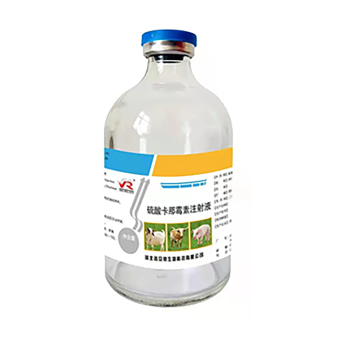- Afrikaans
- Albanian
- Amharic
- Arabic
- Armenian
- Azerbaijani
- Basque
- Belarusian
- Bengali
- Bosnian
- Bulgarian
- Catalan
- Cebuano
- Corsican
- Croatian
- Czech
- Danish
- Dutch
- English
- Esperanto
- Estonian
- Finnish
- French
- Frisian
- Galician
- Georgian
- German
- Greek
- Gujarati
- Haitian Creole
- hausa
- hawaiian
- Hebrew
- Hindi
- Miao
- Hungarian
- Icelandic
- igbo
- Indonesian
- irish
- Italian
- Japanese
- Javanese
- Kannada
- kazakh
- Khmer
- Rwandese
- Korean
- Kurdish
- Kyrgyz
- Lao
- Latin
- Latvian
- Lithuanian
- Luxembourgish
- Macedonian
- Malgashi
- Malay
- Malayalam
- Maltese
- Maori
- Marathi
- Mongolian
- Myanmar
- Nepali
- Norwegian
- Norwegian
- Occitan
- Pashto
- Persian
- Polish
- Portuguese
- Punjabi
- Romanian
- Russian
- Samoan
- Scottish Gaelic
- Serbian
- Sesotho
- Shona
- Sindhi
- Sinhala
- Slovak
- Slovenian
- Somali
- Spanish
- Sundanese
- Swahili
- Swedish
- Tagalog
- Tajik
- Tamil
- Tatar
- Telugu
- Thai
- Turkish
- Turkmen
- Ukrainian
- Urdu
- Uighur
- Uzbek
- Vietnamese
- Welsh
- Bantu
- Yiddish
- Yoruba
- Zulu
ທ.ວ. . 16, 2024 18:56 Back to list
Effective Treatments for Eliminating Tapeworms in Horses
What Kills Tapeworms in Horses?
Tapeworms are parasitic organisms that can infect horses and lead to a variety of health issues, including colic, weight loss, and overall poor condition. Understanding what kills tapeworms in horses is essential for any horse owner or caretaker to ensure the health and well-being of their equine friends. This article will explore the nature of tapeworm infestations in horses, prevention strategies, and treatment options.
Understanding Tapeworms
Tapeworms belong to the flatworm family and are known for their segmented body structure. The most common species affecting horses is *Anoplocephala perfoliata*. These worms typically reside in the intestines of their host and can reach lengths of several meters. Horses become infected by ingesting larvae while grazing, usually from contaminated pasture or feed. The life cycle of tapeworms involves an intermediate host, often a mite, which means horses are susceptible to infection whenever they consume these contaminated hosts.
Symptoms of Tapeworm Infestation
Horses infested with tapeworms may exhibit a range of symptoms. Common signs include
- Weight loss or failure to gain weight despite adequate feeding. - Colic, which can range from mild discomfort to severe, life-threatening pain. - Poor coat condition, appearing rough or dull. - Changes in behavior, such as irritability or lethargy. - Potentially, a bloated abdomen.
Early detection of tapeworms is crucial. Regular veterinary check-ups and fecal egg counts can help identify infestations before they lead to serious health complications.
What Kills Tapeworms in Horses?
When it comes to treating tapeworm infestations in horses, several anthelmintic medications are effective. These medications work by disrupting the life cycle of the tapeworms and eliminating them from the horse's system. The following are the primary classes of drugs used
1. Praziquantel This is one of the most effective medications for treating tapeworms in horses. Praziquantel works by damaging the tapeworm’s skin and leading to its eventual death. It is often included in combination dewormers to enhance the efficacy of treatment.
what kills tapeworms in horses

2. Benzimidazoles While not as effective against tapeworms specifically, medications like fenbendazole can help in managing a broader spectrum of gastrointestinal parasites. However, it is usually recommended to use them alongside praziquantel for thorough tapeworm treatment.
3. Macrocyclic Lactones Drugs such as ivermectin and moxidectin are effective against a range of parasites. Although they do not specifically target tapeworms, they can assist in controlling other parasites, which may reduce the overall parasite load and improve the horse’s health.
Preventing Tapeworm Infestation
In addition to treating existing infestations, prevention is key. Here are several strategies to reduce the risk of tapeworm infections
- Regular Deworming Develop a deworming schedule with your veterinarian that includes medications targeting tapeworms. The frequency may vary based on the horse’s age, lifestyle, and risk factors.
- Pasture Management Maintain clean pastures by rotating grazing areas and removing manure regularly. This will help minimize the exposure to tapeworm eggs and larvae.
- Water and Feed Hygiene Ensure that your horse has access to clean water and feed. Contaminated supplies can lead to infections.
- Monitoring and Observation Keep an eye on your horse's health and behavior. Weight loss, colic signs, or any unusual behavior should prompt immediate veterinary intervention.
Conclusion
Understanding what kills tapeworms in horses is vital for maintaining their health and well-being. With effective anthelmintic treatments and proactive management strategies, horse owners can help prevent and control tapeworm infestations. Regular veterinary care and diligent observation are key components in keeping your horse healthy and happy. By taking these steps, you can ensure that your equine companions lead a long, healthy life, free from the detrimental effects of tapeworms.
-
Guide to Oxytetracycline Injection
NewsMar.27,2025
-
Guide to Colistin Sulphate
NewsMar.27,2025
-
Gentamicin Sulfate: Uses, Price, And Key Information
NewsMar.27,2025
-
Enrofloxacin Injection: Uses, Price, And Supplier Information
NewsMar.27,2025
-
Dexamethasone Sodium Phosphate Injection: Uses, Price, And Key Information
NewsMar.27,2025
-
Albendazole Tablet: Uses, Dosage, Cost, And Key Information
NewsMar.27,2025













